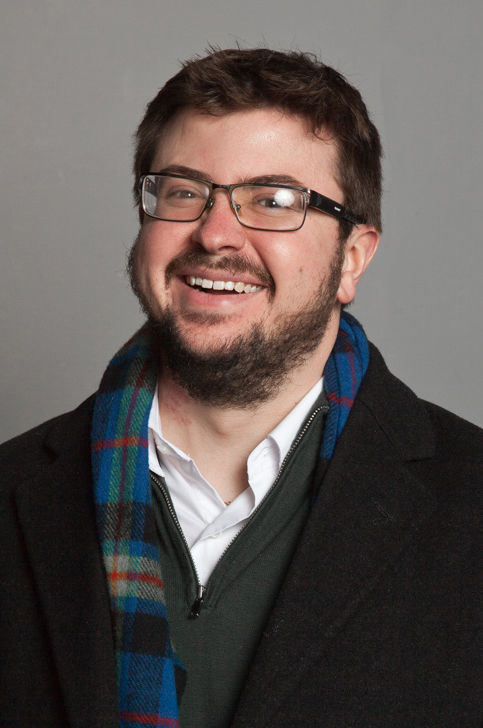When he was a junior in Notre Dame’s industrial design program a decade ago, Mike Elwell created a pill bottle opener with a magnifying glass for people with arthritis. He’s still collecting royalties from the Magnifying Medi-Grip licensed and manufactured by Jokari Inc.
“That’s when I started learning how to harness the potential of my intellectual property,” says Elwell, who earned an M.F.A. in Industrial Design at the University of Illinois at Urbana-Champaign, while working on a crib with a safer mattress to prevent SIDS. “While designing, I’m always thinking about how to commercialize the concepts to improve quality of life. If you never take it to market, it’s just a concept.”
Elwell is a Visiting Assistant Professional Specialist in the Department of Art, Art History & Design. For years, the Department has taught a course on collaborative product development aimed at bringing an idea to market. “We bring in an industry sponsor or take on a social issue,” he says. “We then handpick from around the University designers, engineers, architects, patent attorneys, M.B.A.s, anthropologists, who will have to work together to solve this difficult problem.”

The course naturally attracted some ESTEEM students, so Elwell developed a similar course for all ESTEEM students, Design Entrepreneurship, that he will teach this year.
“This is a process-based course – more studio-based, very hands-on,” he says. “ESTEEM students are typically working with technologies that are very dense. Trying to communicate why this technology is important can often be difficult.”
He has also helped ESTEEM students develop visualizations for their entries in the McCloskey Business Plan Competition. Last year, he mentored Team FitPetz, a fitness monitor for children.
Students will learn to create infographics, sketches, renderings, works-like prototypes, and looks-like prototypes so people outside of their field can understand the ideas. “We’re going to teach them how to humanize this technology,” Elwell says. “A sketch or prototype can easily communicate to somebody how a new product could improve their lives. It’s incredibly important. There’s a bunch of brilliant intellectual property at Notre Dame. Our job, both in the design program and in ESTEEM is to help make these brilliant ideas a reality.”